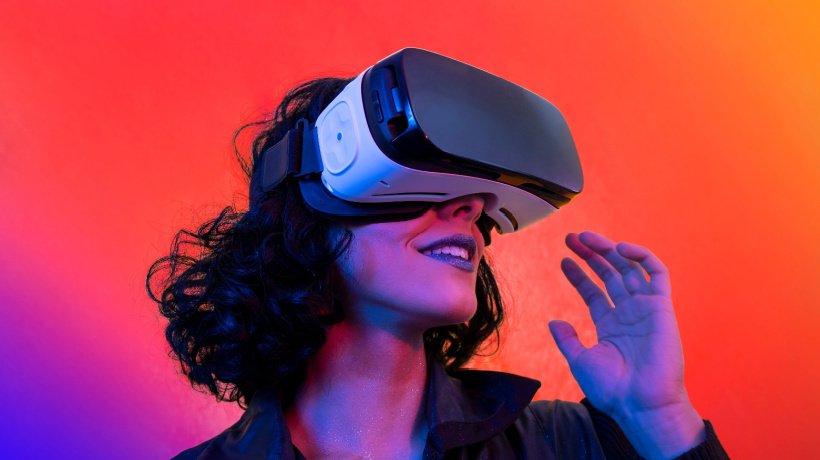How To Learn By Doing, According To John Dewey
As an extremely influential philosopher, John Dewey (1859–1952) developed a theory of education that emphasized the importance of experiential learning or, in simpler terms, "learning by doing." He was a prominent advocate of actively engaging students in learning situations, instead of passively offering them learning material and expecting them to absorb it. His theory is known as John Dewey's theory of education, and it has been used as a tool for educational and social reform within classrooms for decades. Let's discuss the theory's framework and how it can act as a blueprint to ensure effective instructional practices in your in-person classroom regardless of grade level.
The Theory Of Education
John Dewey believed that education should be a process of active engagement between instructors and learners. He contradicted the traditional classroom method of passively transmitting information from teacher to student. Within the context of this theory, education should be a two-way street, where students can actively pursue learning opportunities and gather hands-on experience through experiential activities that allow them to explore and discover new ideas.
Dewey believed that individuals grow and learn as they interact with the world. Through encounters with their surroundings, individuals discover new ideas, concepts, and practices that allow them to form their own understandings, which they gradually reinforce through their learning and social experiences. For Dewey, all real-world experiences can be educational. In fact, the theorist encouraged learners to actually inspect and examine their findings, instead of settling for explanations from third parties. That's not to say that social interaction isn't a vital component of John Dewey's theory; Dewey believed that all findings exported from an experiential learning process should later be reinforced by the learner's social circle in order to enhance their learning and retention outcomes.
John Dewey's Principles And Ideas About Education
John Dewey's theory essentially comprises a set of instructional concepts and principles that highlight a learner's active role in their own learning. The baseline of his work is grounded in pragmatism, the tangible consequences of the inner workings of a concept or a practice. Hence, Dewey's theory encompasses the following principles:
- Experiential learning
Learning is an active process that requires hands-on experience, rather than rote memorization of facts. - Social learning and social interaction
People learn when they interact and engage with each other because learning is a social process. - Collaborative learning
An individual's learning outcomes are optimized when they choose to collaborate on a peer-to-peer level and generate shared understandings of shared experiences. - Critical reflection
Education should be grounded on individuals critically processing all receiving information, instead of settling for third-party explanations or speculations. - Curriculum integration
While traditional subjects should be part of the teaching syllabus, educators should also focus on integrating subject matters that reflect their learners' interests. - World experience
Dewey believed that all aspects of real life can provide educational experiences; students should constantly interact with the world to develop new ideas, new understandings, and new habits. - Questioning
Learners should question the information and stimuli they receive from their surrounding environment to better understand the issue at hand. - Emotional responses
The learning process relies heavily on emotional responses; educators should strive to integrate topics that stimulate their students' emotions.
How To Effectively Utilize John Dewey's Theory In A Classroom
While John Dewey's theory encourages individuals to go out, explore the world, and learn from it, that doesn't mean the theory can't be applied to teacher-structured environments. The key is for educators to build non-classroom-bound curricula that provide freedom for exploration and opportunities for learners to process and question the information acquired. As learners interact with the world and gather knowledge, they should receive assistance in organizing and classifying information into concepts to make the learning process less overwhelming. Depending on grade level, prior knowledge, and each student's individual attributes, instructors should form curricula that reflect their classroom's interests, knowledge gaps, and capabilities.
Instructors should encourage their students to take an active role in their learning by offering them opportunities to explore and experiment with new concepts, processes, and practices. A great way to implement John Dewey's theory is through project-based, collaborative, and experiential learning; students can form groups and work on interdisciplinary projects that require fieldwork and the application of theoretical concepts in a real-world context. You can easily apply this in your classroom by organizing thematic field trips led by Subject Matter Experts who can demonstrate interesting aspects of different concepts and practices. Through experience, collaboration, and self-reflection, learners can explore how to apply knowledge and skills to solve problems, think critically, and discover the world, one project at a time.
Conclusion
We learn through our actions and experiences; John Dewey's theory has had a lasting impact on education because it was founded on that approach. His theory highlights the importance of actively engaging students, providing them with opportunities to gather hands-on experience while encouraging them to ask questions and think intelligently and critically. In this framework, learners should attempt to intellectualize their understanding of the world and process it within an environment conducive to critical reflection. This way, educators are able to educate efficiently, and learners are able to learn effectively.
All in all, it's a versatile theory that emphasizes the value of student-centered, experiential learning by focusing on the learner taking an active part in their own education. The concept is an exemplary representation of individualized learning that combines the practical application of knowledge and experimentation, which makes it ideal for students of all ages. And there's more where that came from; our Instructional Design Models And Theories list contains a variety of interesting concepts like John Dewey's theory.
Editor's Note
John Dewey’s theory of education emphasizes experiential learning, advocating learning by doing rather than settling for third-party explanations. At eLearning Industry, we have also observed that learning through action and experience is more effective than simply absorbing information from learning materials. We agree that education should be a two-way street, where students can actively pursue learning opportunities. This learning style offers them crucial hands-on experience and allows them to explore and discover new ideas independently. Through encounters with their surroundings, learners discover new concepts and practices that deepen their understanding.
Having worked with various learning models, we have observed that individuals grow and learn as they interact with the world. According to Dewey’s philosophy, all real-world experiences can be educational. Learning is a social process. People learn when they interact and engage with each other through a connected network. They should question the information they receive from their surroundings to better understand the issue at hand. While Dewey’s theory encourages individuals to go out, explore the world, and learn from it, it does not mean it cannot be applied in structured learning environments. Learners can benefit from a learning model that allows them to explore new ideas and question the information they receive.








